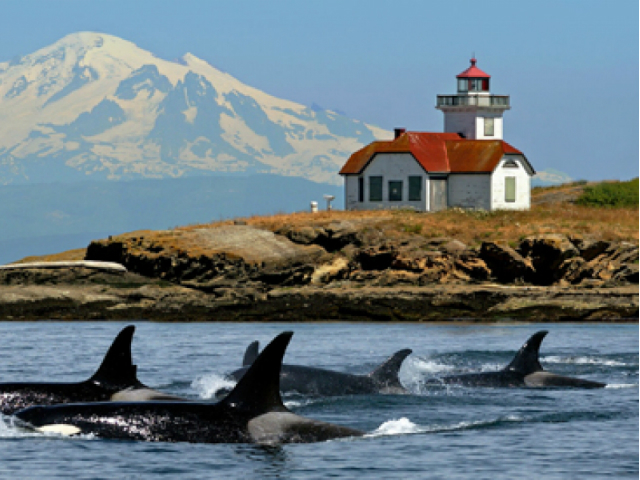Nestled on the northeastern tip of Washington’s Olympic Peninsula, Port Townsend is a quaint seaport that doesn’t just boast a picturesque landscape and a Victorian-era aesthetic; it also serves as a beacon of sustainability and eco-tourism. In this blog post, we’ll explore how Port Townsend is leading the way with eco-friendly businesses, sustainable agriculture, and robust conservation efforts, making it a prime destination for environmentally conscious travelers.
Eco-Friendly Businesses: A Local Commitment to Sustainability
One of the most inspiring aspects of Port Townsend is the local business community’s commitment to eco-friendly practices. Cafés like the Better Living Through Coffee use organic and locally sourced ingredients, offer compostable serviceware, and prioritize waste reduction. Similarly, bookstores like Imprint Bookstore stock a selection of eco-conscious reading materials and promote local authors, reducing the carbon footprint associated with shipping.
Sustainable Agriculture: Farm-to-Table and Beyond
Port Townsend’s surrounding area is a tapestry of agricultural abundance. Farms such as Midori Farm and Red Dog Farm exemplify the region’s commitment to organic farming, providing locals and visitors alike with fresh, seasonal, and sustainably grown produce. Many restaurants in town, such as Finistère, embody the farm-to-table ethos, featuring menus that adapt to the harvest calendar and showcase the best of what local farms offer.
Conservation Efforts: Protecting Natural Beauty
Port Townsend is not only surrounded by natural beauty but is active in its preservation. Organizations like the Jefferson Land Trust work tirelessly to protect vital habitats and landscapes. Their efforts ensure that areas such as the Quimper Wildlife Corridor continue to provide sanctuary for local wildlife and recreation spaces for the community.
Eco-Tourism Activities: Engaging with Nature Responsibly
For the eco-tourist, Port Townsend offers a plethora of activities designed to minimize environmental impact and maximize engagement with nature. Kayak tours through the Puget Sound Express offer the chance to see orcas and humpback whales in their natural habitat, while local tour guides educate visitors on the importance of marine conservation.
Eco-Accommodations: Staying Green
Accommodations like the Swan Hotel or the Palace Hotel have implemented green policies to reduce their environmental impact. These range from using energy-efficient appliances and lighting to providing guests with locally sourced bath products. By staying at these establishments, visitors support businesses that are committed to sustainable practices.
Community Events: Celebrating and Educating
Port Townsend is also home to community events that celebrate and promote green living. The annual Jefferson County Farm Tour showcases local, sustainable farms, while the Port Townsend Farmers Market is a treasure trove of organic products and a meeting place for those passionate about sustainable living.
Sustainable Travel Tips
Visitors to Port Townsend can embrace eco-tourism by following a few sustainable travel tips:
- Use the many bike trails around town for transportation.
- Bring reusable bags, water bottles, and other eco-friendly travel gear.
- Support local artisans and farmers by purchasing local goods and produce.
- Participate in local beach clean-ups or conservation events if your visit coincides with one.
Conclusion: A Model for Eco-Conscious Travel
Port Townsend isn’t just a beautiful destination; it’s a community that’s deeply engaged with the principles of sustainability and conservation. It serves as a model for eco-conscious travel, showing that it’s possible to enjoy the splendors of the Pacific Northwest in a way that is respectful to the environment and supportive of the local economy. Whether you’re dining on the freshest organic produce, staying in accommodations that put the environment first, or simply enjoying the stunning natural beauty, you’re contributing to a culture that values and protects its natural assets. Port Townsend is a reminder that responsible tourism can be both enriching and incredibly enjoyable.


